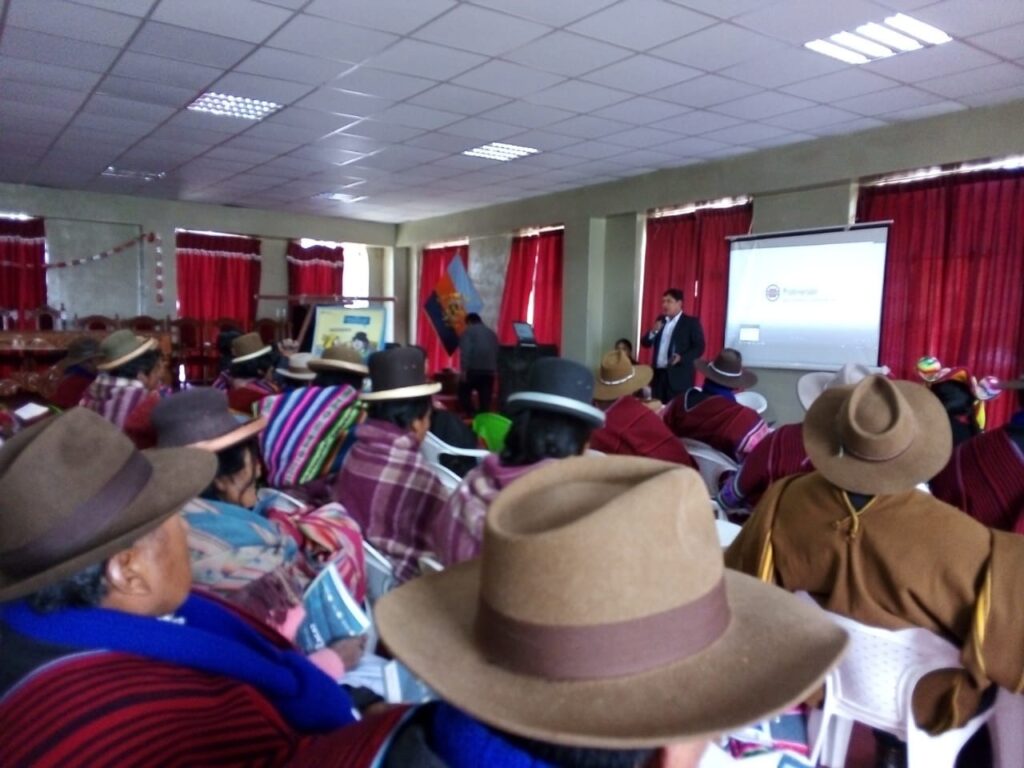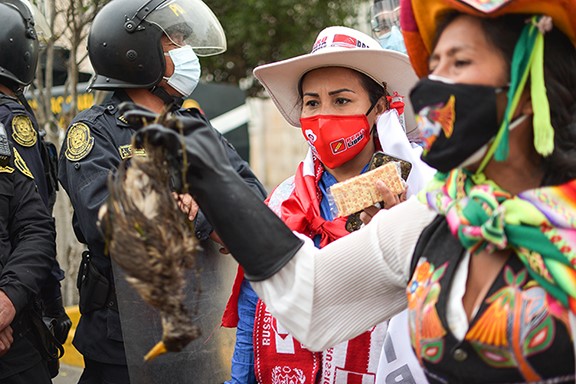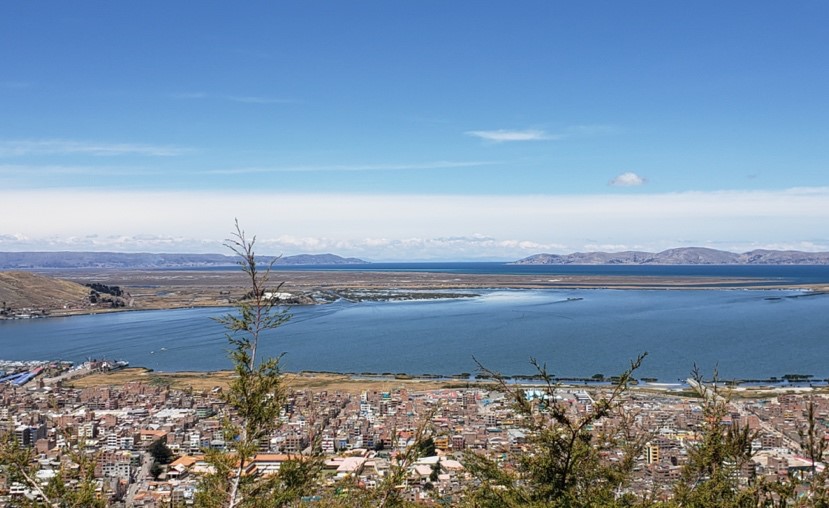Dayna Cueva Alegría 2021 Field Report
The Governance of Lake Titicaca’s Water Pollution: Creating Political Spaces of Democratization
Abstract: Since the 1990s, rural and urban communities bordering Lake Titicaca have faced increasing vulnerability due to intensifying wastewater pollution from urban centers in Puno. In 2019, however, the Peruvian Central government’s implementation of sewage water treatment plants (SWTP) for ten towns straddling Lake Titicaca marked an unprecedented environmental response. This study aims to understand how despite an historically antagonistic relationship, Puno civil society environmental actors and state institutions have managed to join political efforts to govern Lake Titicaca’s water pollution through the implementation of SWTP. Employing qualitative methods and drawing from literatures in political theory and environmental geography, this research examines synergistic engagements; namely, patterns and changes in civil society environmental actors and state institutions’ joint democratic political practices, the strategies and approaches used to address constraints in the political landscape, and the ways environmental values activate democratic political practices. Thus, the aim is to further understanding of how such synergies have led to the desired environmental governance outcomes like the implementation of SWTP, and whether this in turn indicates attainment of greater citizen political empowerment, and ultimately, the advancement of environmental democratization. The research may also inform water pollution governance contexts and struggles elsewhere.
Keywords: environmental democratization, water pollution, synergy, state and civil society, environmental governance
My research examines the political efforts and environmental values of civil society in Puno, Peru and state actors and institutions that underlie the governance of Lake Titicaca’s water pollution. This governance is examined through the implementation of ten sewage water treatment plants (SWTP) in 2019, authorized by the Lima Central government, which is claimed can mitigate the lake’s contamination and reduce the disproportionate levels of vulnerability certain Puno rural and urban communities face. The purpose of the research is to understand the governance of Lake Titicaca in terms of synergistic engagements – the expansion and convergence of the cooperative political practices of civil society environmental actors (CSEA) and state institutions – that have led to the implementation of SWTP, and whether this in turn indicates greater rural political empowerment, and ultimately the advancement of environmental democratization.
With the support of the CLAG Field Study Award, I conducted 14 months of fieldwork until May 2022. I was located in Lima during Phase 1 of the research. In this phase, I identified the team of Lima state actors from the Ministry of Housing and Sanitation and those from ProInversión (the state institution tasked with developing the technical aspects of development projects deemed of national interest and providing the funding for such projects through private-public partnerships). I conducted 15 semi-structured interviews and 2 oral histories with Lima central state actors from the Ministry of Housing and Sanitation, ProInversión, and the Ministry of Environment. During Phase 2, I carried out 23 semi-structured interviews and 4 oral histories with Puno with rural and urban civil society state actors, as well as local authorities, identified during my interviews with Lima state actors during Phase 1. My interviews focused on discussing how all of these actors played a role in the implementation of SWTP, by specifically investigating (1) the ways they have generated opportunities for synergy in terms of democratic political practices of deliberative participation, representation, and state accountability, (2) their perceptions of barriers in the political landscape to the implementation of SWTP, and (3) delving into their environmental values through their understanding of the meaning of water.
I also accessed archival material from ProInversión and the Ministry of the Housing and Sanitation. These materials included official government documents, photography, and video footage containing detailed information regarding how the implementation of SWTP unfolded, particularly the activities conducted between state and civil society actors. These documents also contributed to identifying the social workers in Puno that were temporarily hired by ProInversión to advance the social component of SWTP project. This was a turning point in the fieldwork as the social workers were more connected than any other state actor to the civil society actors involved in the project and, thereby, facilitated my research by inserting me into the social networks they had built for the SWTP project. Given the political nature of the study and the Puno social context, high levels of trust are needed to gain consent from civil society environmental leaders to conduct interviews.

Documents and photographs collected from civil society actors I interviewed allowed me to identify the communities most affected by the contamination, such as the rural Coata district. Notably, in 2013 a woman environmental leader from Coata, Maruja Inquilla, founded the Coata River and Lake Titicaca Defense Coalition. A decisive moment in the coalition’s activism came when she and other leaders in her community organized residents of Coata in October 2014 to close and seal off the main sewage pipe of the city of Juliaca, which continuously dumped the city’s untreated sewage and trash directly onto the Coata river. This was crucial in attracting the Central government’s attention as Juliaca entered a state of emergency due to its overflowing sewage system. Aside from garnering the attention of the Lima central government, the Coata leaders were well received and supported by key figures in the Central government. This partnership was a crucial starting point for moving forward with an infrastructural response from the Central government and for the Coata community to feature prominently and play a significant role in meetings and activities related to the implementation SWTP.


Please see the full report for more details.


















